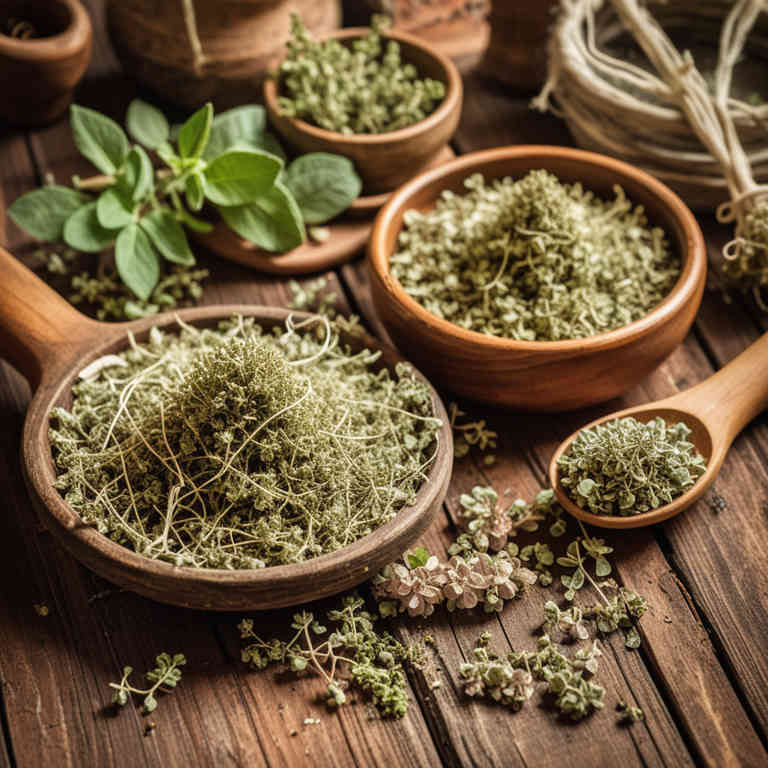Origanum vulgare decoction for medicinal use

Origanum vulgare decoction is a preparation made by boiling the dried leaves and flowers of oregano, a plant commonly known for its strong aromatic properties.
This decoction is used in herbalism to support respiratory health, aid digestion, and alleviate symptoms of colds and coughs. It is also valued for its antimicrobial and anti-inflammatory effects. The preparation is often used as a tea or added to bath water for its soothing properties.
In traditional medicine, it has been employed to treat various ailments, including digestive issues and skin irritations.
Uses
Origanum vulgare decoction has been used to treat digestive ailments, respiratory infections, and as a general tonic for overall health.
Historically, it was valued in ancient Greece and Rome for its medicinal properties and was often used to aid digestion and relieve stomach discomfort. In traditional medicine, particularly in Mediterranean cultures, it has been employed to reduce inflammation, relieve headaches, and promote respiratory health. Modern research supports its use in alleviating symptoms of indigestion, nausea, and even as a natural remedy for colds and coughs.
Today, it is commonly found in herbal remedies and is appreciated for its antioxidant and antimicrobial properties.
Benefits
Origanum vulgare decoction has health benefits such as promoting digestion, reducing inflammation, and supporting respiratory health.
It is often used to alleviate symptoms of colds and coughs due to its expectorant properties. The decoction may also help in reducing nausea and improving appetite. Its antimicrobial and antioxidant properties contribute to boosting the immune system.
Additionally, it has been traditionally used to relieve stress and improve mood.
Constituents
Origanum vulgare decoction active constituents include carvacrol, thymol, terpenoids, flavonoids, and phenolic acids.
These compounds contribute to the decoction's antimicrobial, anti-inflammatory, and antioxidant properties. Carvacrol and thymol are the primary phenolic compounds responsible for its strong antimicrobial effects. The flavonoids in the decoction may support immune function and reduce oxidative stress.
This herbal preparation is commonly used to support digestive health, alleviate respiratory issues, and promote overall wellness.
Preparation
To make Origanum vulgare decoction, start by gathering fresh or dried oregano leaves.
Rinse the leaves if they are fresh, then place them in a pot with about 1 liter of water. Bring the mixture to a boil, then reduce the heat and let it simmer for 10 to 15 minutes. Strain the liquid through a fine mesh or cheesecloth to remove the plant material.
The resulting decoction can be consumed as a tea, typically 1 to 2 cups per day, depending on individual needs and consultation with a healthcare provider.
Side Effects
Origanum vulgare decoction may lead to gastrointestinal discomfort, such as nausea, vomiting, or diarrhea, especially when consumed in high doses.
It can also cause allergic reactions in individuals sensitive to plants in the Lamiaceae family, including symptoms like rash, itching, or swelling. Prolonged use may result in liver toxicity, as some compounds in oregano have been shown to affect hepatic function. Additionally, it may interact with medications, particularly those processed by the liver, increasing the risk of adverse effects.
It is important to consult a healthcare professional before using this preparation, especially for pregnant women, nursing mothers, or individuals with chronic health conditions.